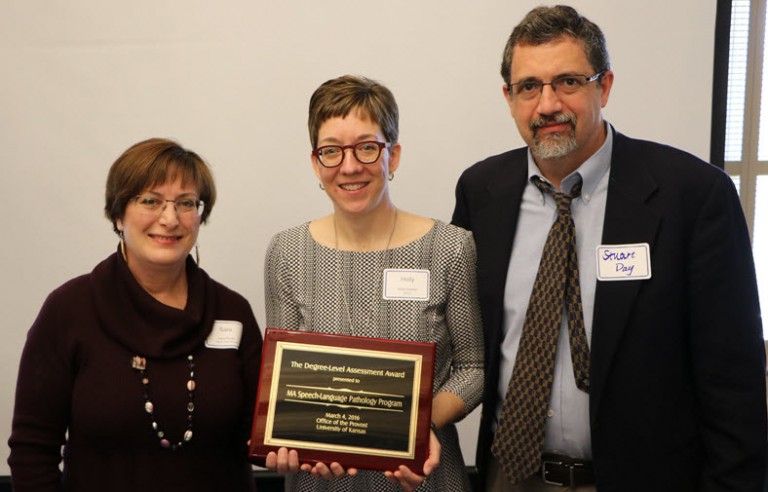Asked to describe the things that help them learn, students provide a remarkably consistent list:
- Engagement
- Interaction
- Clarity
- Openness
- Accessibility
- A sense of belonging
That’s hardly a complete list, but those ideas came up again and again during a focus group at KU’s recent Student Learning Symposium. Not surprisingly, those same components come up again and again in research on learning.

The focus group at the learning symposium consisted of three undergraduate and three graduate students who had agreed to share their experiences at a round-table discussion. They were open and candid in their assessment of their own learning and of the learning they see in classes they help with. These categories overlap, but they provide a good sense of what students say is important.
Engagement
One of the undergraduates, who also works as a TA for a biology class, described students’ mindset about their classes like this: “Is there a reason for being there?” That is, will attending class help them do better on quizzes, exams, papers, and other assignments? Or will the instructor just read from slides that are later posted online? When in-class work engages students and clearly makes a difference in their performance, “now there’s a reason to be there,” students said.
Openness
Many students are anxious and apprehensive at the beginning of a term, and a sullen or seemingly angry professor will push them away with just a look. Professors who do nothing except lecture can seem standoffish, students said, and students don’t know how those professors will react if students try to talk with them.
On the other hand, instructors who are approachable make a big difference in classes, students say. Even in big classes, some instructors walk around the room, talk with students and answer questions. It’s impossible to get to know students well in big classes, but setting a positive tone can make students feel that they belong and want to be involved in a class, students said.
Clarity
Too many instructors teach as if students are experts rather than beginners, students said. Instructors need to think more from students’ perspective and try to remember what it’s like to work with new material for the first time. Professors simply must get better at explaining, students said.
Relatedly, students say are willing to go along with experimentation in format, assignments, and other elements of a class. The key is communication. “As long as instructors explain, students will be up for that,” one undergraduate said.
Both undergraduate and graduate students said that disciplinary programs needed to do a better job of helping students see the bigger picture of a program or a degree. Students need to “understand that there’s a future to all this information,” one student said. Graduate students said departments also needed to do a better job of integrating coursework with research.
Sense of belonging
The first semester at a new university can be painful, and successfully negotiating the freshman jitters makes a huge difference in whether students will stay the year or eventually graduate. Universities have recognized that and use programs like First-Year Experience to reach out to freshmen and help them maneuver through the educational maze.
Graduate students said they experienced much the same pain, loneliness, and disorientation as undergraduates. Unfortunately, they said, the university doesn’t do much to help them get situated. They recommended orientation sessions for graduate students, a better means of acquiring coping and learning strategies from peers, and better communication from departments. Graduate school is “so much more rigorous and so much harder,” one student said, and the university needs to do a better job of helping students cope.
Interaction
Interaction among students, and between instructor and students makes class much more meaningful, students said, lamenting about classes where they are simply “talked at.” One undergraduate said, “Lecture makes me wonder why I am coming to class to have you read slides to me.”
A Ph.D. student in the sciences echoed that sentiment. Too many graduate courses in STEM fields involve little but lecture, he said. He came to graduate school expecting to delve into critical analysis of problems and pursuit of new ideas. Instead, he found a frustrating emphasis on delivery of information. Graduate students in STEM fields are discouraged from discussion, he said, even though “interaction makes or breaks a class.”
Training for TAs
Graduate students at the learning symposium said the university needed to do a better job of helping them learn to teach effectively, and to provide incentives for graduate assistants to teach well. Many teaching assistants, especially those in the sciences, are told to spend as little time as possible on teaching, students said. (We’ve heard the same lament from students at CTE events for years.)
Gradate programs should be designed so that doctoral students learn to be well-rounded faculty members, not just research machines, students said. They called for more teaching workshops and other training for TAs. “A lot of grad students are doing only research,” one student said. “Once they graduate, they will be thrown into teaching with no experience.” He added, “This narrow focus is hurting many grad students.”